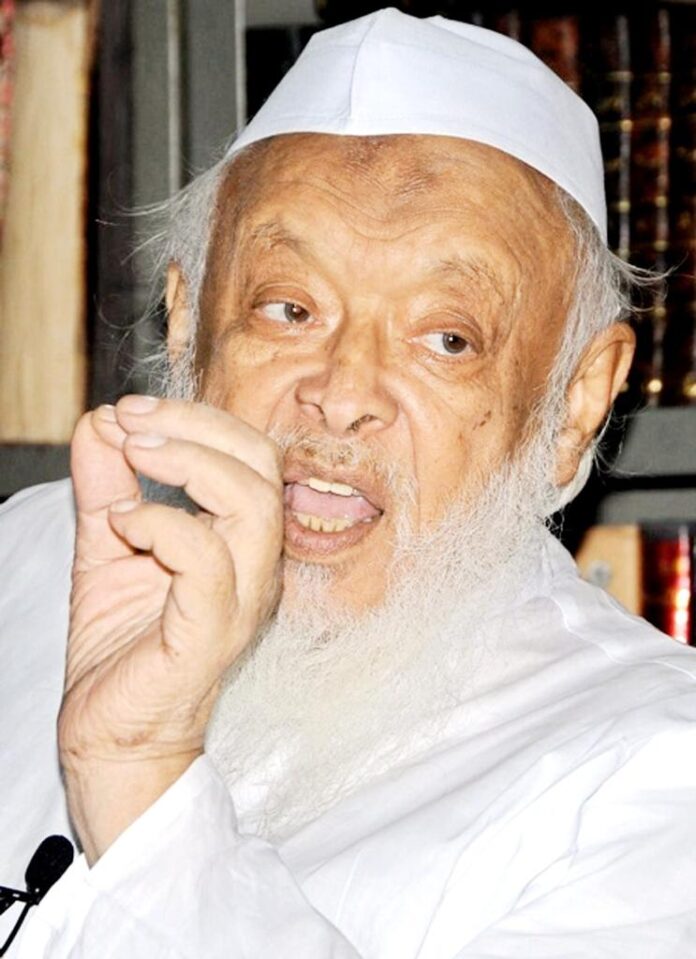India Tomorrow
NEW DELHI: Jamiat Ulama-e-Hind (JUH), led by its president Maulana Syed Arshad Madani, has drafted guidelines for the “Bulldozer Action” case, in compliance with the Supreme Court’s directive on September 2. The JUH plans to submit this draft to the Supreme Court, which is scheduled to hear the case again on September 17.
According to a statement issued by the JUH, the draft guidelines address instances where state authorities have misused bulldozers to demolish properties belonging to Muslims and others in violation of existing laws. The JUH has included these states as parties in tits petition to the Supreme Court.
The JUH legal team has proposed several key recommendations in the draft, aiming to establish comprehensive rules and regulations for bulldozer actions. These recommendations are based on a thorough national review of the case.
The controversy began in February 2022 when an illegal bulldozer action was conducted against a Muslim settlement in Jahangirpuri, Delhi. This practice soon spread to other BJP-governed states, with some media outlets describing it as “bulldozer justice.” JUH responded by petitioning the Supreme Court, seeking immediate intervention against what they termed “bulldozer injustice.”
On April 26, 2022, JUH filed a petition with the Supreme Court, following the direction of Maulana Arshad Madani. Since then, the case has seen 19 hearings. Earlier, on April 20, 2022, the Supreme Court had ordered a halt to bulldozer actions, maintaining the “status quo,” which remains in effect.
Senior lawyers Kapil Sibal, C.U. Singh, and Nitya Ramakrishnan, along with Advocate-on-Record Kabir Dikshit, and other advocates including Nizamuddin Pasha, Sarim Naveed, Shahid Nadeem, Arif Ali, and Mujahid Ahmed, have represented JUH in various hearings.
JUH named the Government of India, the Ministry of Law and Justice, and the state governments of Uttar Pradesh, Madhya Pradesh, Gujarat, North Delhi Municipal Corporation, and Delhi Police as parties in their petition. The Supreme Court has issued notices to these parties.
While other petitioners have challenged bulldozer actions, they have focused on specific authorities rather than addressing all involved states. On September 23, 2022, during a hearing, the Supreme Court indicated that the case might be dismissed due to the halt of bulldozer actions. However, JUH’s lawyers requested the court to establish nationwide guidelines to prevent future occurrences, leading to a postponement of the case.
After a gap of about a year and a half, when bulldozer actions resumed in Madhya Pradesh and Rajasthan, JUH’s lawyers sought immediate court intervention. On September 2, the Supreme Court’s two-member bench, Justices B.R. Gavai and K.V. Viswanathan, ordered the issuance of guidelines to halt bulldozer actions and requested suggestions from JUH and other parties.
During the hearing, Solicitor General of India Tushar Mehta criticized JUH, accusing the organization of complicating the case for political and non-political reasons.
From the beginning, JUH has asserted that no individual’s property should be subjected to bulldozer actions in any state. Although municipal laws already provide guidelines for such actions, officials often violate these rules and target specific communities under political pressure. This misuse of bulldozers represents not “bulldozer justice” but a serious abuse of power, prompting the Supreme Court to take action.





